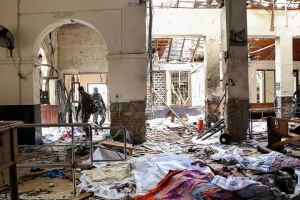My country Kazakhstan has always been a bridge between the East and the West, lying along the old silk road. Today, not only is it bridging the divide between the East and the West, but also between the Global North and the Global South.
It is in this context that on June 8 Kazakhstan’s President Kassym-Jomart Tokayev will open the Astana International Forum, a global event aimed at renewing the culture of multilateralism. It is part of our multi-vector foreign policy which seeks to engage countries in the north, south, east and west.
The forum will bring people together from across the world and give participants an opportunity to address global challenges and chart a new way forward. We are honoured that one of our guests will be the Emir of Qatar, Sheikh Tamim bin Hamad Al Thani, who will lead a delegation to the forum representing his country.
Occasions such as the Astana International Forum present us with an opportunity to consider how to overcome key global challenges currently facing humanity, which broadly speaking, fall into three interlinked categories – economy, climate change and international relations.
First, the weak economic growth, high inflation, soaring energy prices, and critical supply chain issues which emerged following the COVID-19 pandemic and world conflicts continue to cast a shadow over the global economic outlook. In January, the IMF reported that the global economy is poised to slow down even further in the coming months, with growth only expected to rebound next year.
Hope on this front, however, can be seen in emerging markets, where higher than average growth rates – about 4 percent – are projected compared with advanced economies, which will expand by only 1.2 percent. This highlights the importance of emerging markets to investors at this time.
As minister of trade and integration, I have seen firsthand the benefits of foreign direct investment after the country’s independence in 1991, especially in Kazakhstan’s energy and mining sectors.
These investments have contributed significantly to the development of cities and regions and have activated local economies. Going forward, the manufacturing industry, the agricultural sector, and the heavy industry are at the top of our priority list for investment.
Second, a growing concern for emerging and advanced economies alike is the climate emergency which is manifesting itself in increasingly more intense droughts, wildfires and floods. This has led to growing food and water security concerns in the Global South, where countries have to allocate larger proportions of their gross domestic product (GDP) to protect their populations and essential infrastructure.
The climate emergency is exacerbating the North-South divide and existing inequalities. That is why many countries in the Global South are calling on development banks and global financial institutions to unlock more funds to help ease and accelerate the transition to renewable energy.
There is growing disunity on this subject at a time when the world needs to take a united stand to tackle this global challenge. Overcoming disagreement necessitates developing partnerships and cooperation.
And this brings me to the third challenge: recognising the need for open, frank and productive global dialogue. Today, globalisation continues to bind us closer together and deepen our interdependence. And there is no way to tackle new economic hurdles, the climate emergency, shifting geopolitical priorities or mass demographic changes without cooperation and keeping channels of communication open.
President Tokayev has often stated that there is no viable alternative to globalisation, interdependence, and the international order based on the UN Charter. It is imperative for us to strengthen global cooperation, not reject it. Diplomacy and dialogue are the solution, and global gatherings which bring partners together – old and new – are the means to facilitate this.
We hope that the Astana International Forum will become a key venue where multilateralism is resurrected and where we are able to agree on solutions for global problems. As hosts, we hope to see collective responsibility reaffirmed and collaboration and cooperation strengthen so we can all move towards a brighter future together.
Source : Aljazeera










